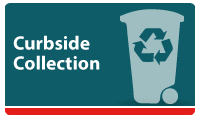Single-Use Items Bylaw FAQ
Single-Use Items Bylaw FAQ
The District of Squamish Single-Use Items Bylaw supports Council’s climate action priorities by significantly reducing the use of single-use items across the spectrum.
Single-use items are disposable items such as products and packaging that are disposed of after a single use.
The Single-Use Items Reduction Bylaw regulates checkout bags, straws, takeout styrofoam containers and plastic utensils.
Plastic bendable straws are an important accessibility tool for people with disabilities and therefore businesses who sell beverages will still be required to provide straws for those who request them.
An Accessible Straw is a plastic, bendable straw required for health, medical or disability reasons.
Biodegradable and compostable plastics pose significant problems for recycling and composting facilities due to their chemical composition. This bylaw prohibits the distribution of biodegradable and compostable plastic bags and straws.
Businesses are required to ask a customer if they would like a straw. Only then can they provide a paper straw. The exemption is if a customer requires an Accessible Straw.
Yes, this bylaw applies to all businesses in Squamish who wish to provide checkout bags. A toolkit will be provided to retailers that will include materials necessary to inform and educate their employees and customers.
Bags will still be allowed to package the following:
- Loose bulk items (such as fruit, vegetables, nuts, grain or candy);
- Loose small hardware items such as nails and bolts;
- Frozen foods such meat, poultry or fish, whether pre-packaged or not;
- Flowers or potted plants;
- Prepared foods or bakery goods that are not pre-packaged;
- Prescription drugs received from a pharmacy;
- Clothing after professional laundering or dry cleaning.
It is estimated that the production of paper bags generates three times the environmental and greenhouse gas than the production of plastic bags due to the way in which they are manufactured and transported. In addition, paper can produce methane, a potent greenhouse gas, when breaking down. Research suggests that banning single-use plastic bags could lead to increased use of other types of bags, such as paper bags, and therefore the bylaw aims to reduce the use of all checkout bags.
Only if you need one! If you already use reusable bags, that’s great. We encourage you to continue bringing them with you when you go shopping and reusing them over time. We also encourage the reuse of old plastic and paper bags.
Some single-use plastics are marketed as recyclable or compostable, but they either cannot be recycled (such as straws), or result in contaminating organics loads (such as lids, bags, or containers). The bylaw therefore prohibits “biodegradable” or “compostable” plastic bags and straws as these items cannot be composted or recycled.
The following bag-types can be provided to a customer. Note that they both must be accompanied by a fee.
- “Recycled Paper Bag” means a paper checkout bag that contains at least 40% recycled paper content, and has a reference printed on the outside of the bag to the applicable amount of recycled content with the word “recyclable”
- “Reusable Bag” means a bag with handles that is for the purpose of transporting goods from a Business and that is designed and manufactured to be capable of at least 100 multiple-time uses, and primarily made of washable fabric.
The customer must be charged a fee of not less than, as applicable:
-
- $0.75 per Recycled Paper Bag; or
- $2.75 per Reusable Bag.
The business is to keep all fees related to check-out bags.
Yes, a business may provide or sell plastic bags or paper plastic check-out bag if the business reasonably deems the following:
- the customer’s disability or medical reasons; or
- financial hardship upon the Customer; or
A Small Paper Bag is a Paper Bag that is less than 300 square cm when flat.
Toolkit and Resources
The District of Squamish is providing these resources to make the implementation of the Single-Use Items Reduction Bylaw easier for business owners, staff, and patrons. Please download and print or distribute digitally to your staff.
Useful Resources for Businesses:
Single-Use Items Reduction Bylaw General Brochure
Single-Use Items Reduction Bylaw Retailer Info Sheet
Single-Use Items Reduction Bylaw Retailer Checkout Bags Info Sheet (half letter)
Single-Use Items Reduction Bylaw Retailer Checkout Bags Info Sheet (quarter letter)
Single-Use Items Reduction Bylaw Till Topper Customer Info
Do you have more questions and need additional support? Or you are unable to work with digital material and require printed copies? Contact us at [email protected] with any inquiries about the Single-Use Items Reduction Bylaw.
Curbside Collection FAQs

Collection schedule and electronic reminders
- Animal Control
- Bylaws & Enforcement
- Cemetery
- Emergency Program
- Environment & Sustainability
- Garbage & Waste Diversion
- Online Services
- Parks and Trails
- Protective Services
- Public Access AED
- Road & Drainage Maintenance
- Squamish Municipal Airport- Don Patrick Field
- Squamish Public Library
- Property Taxes and Utilities
- Transportation
- Water & Wastewater
- Living with Wildlife